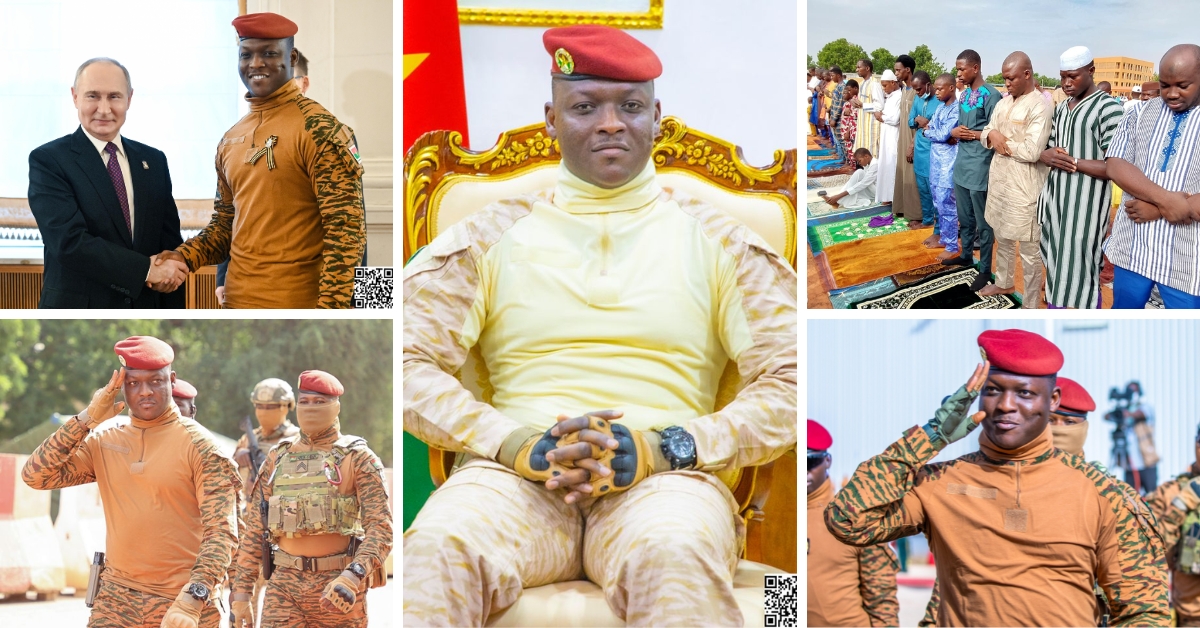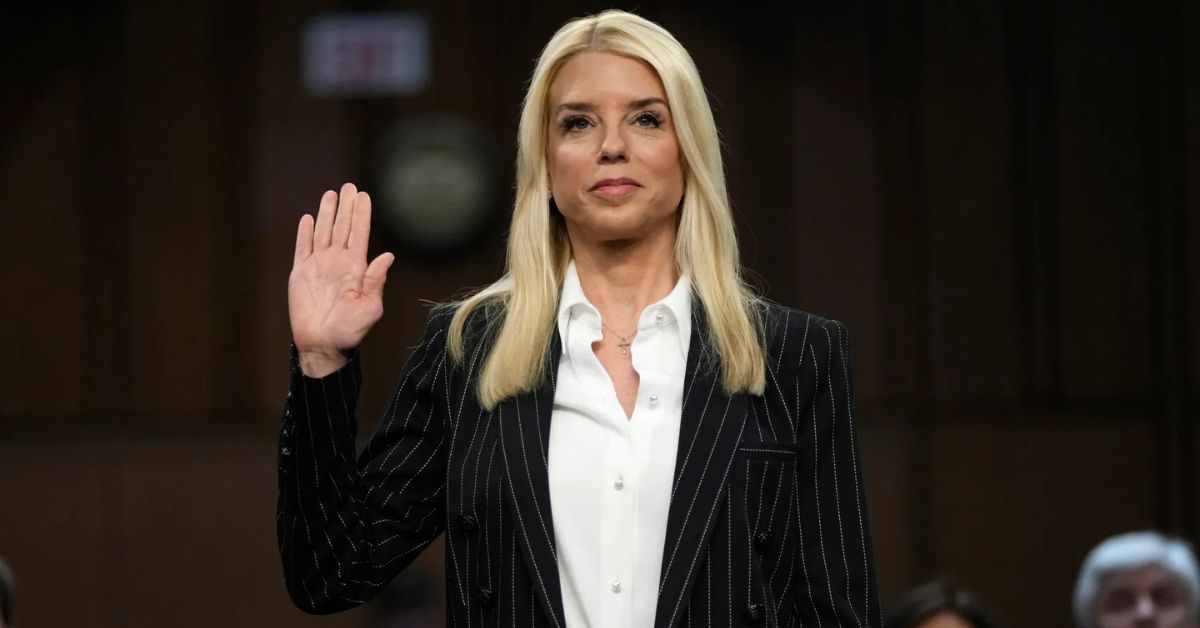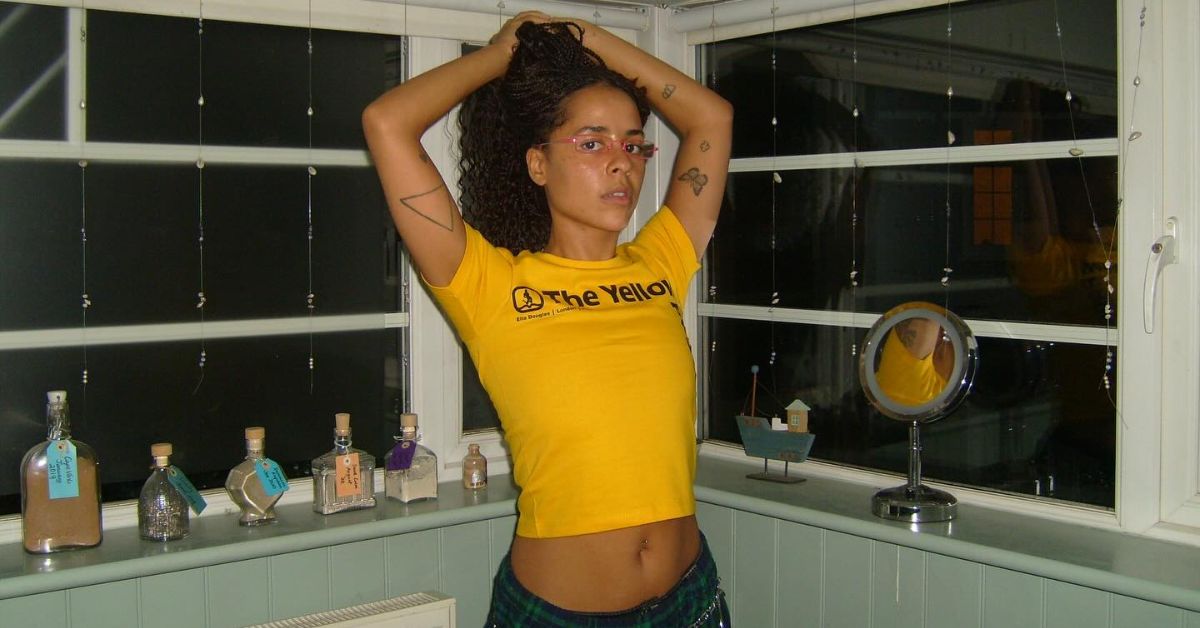Explore Ibrahim Traoré, Burkina Faso’s youngest president, whose bold vision for African self-reliance inspires millions but stirs debate amid security and human rights challenges.
Table Of Contents
Ibrahim Traoré
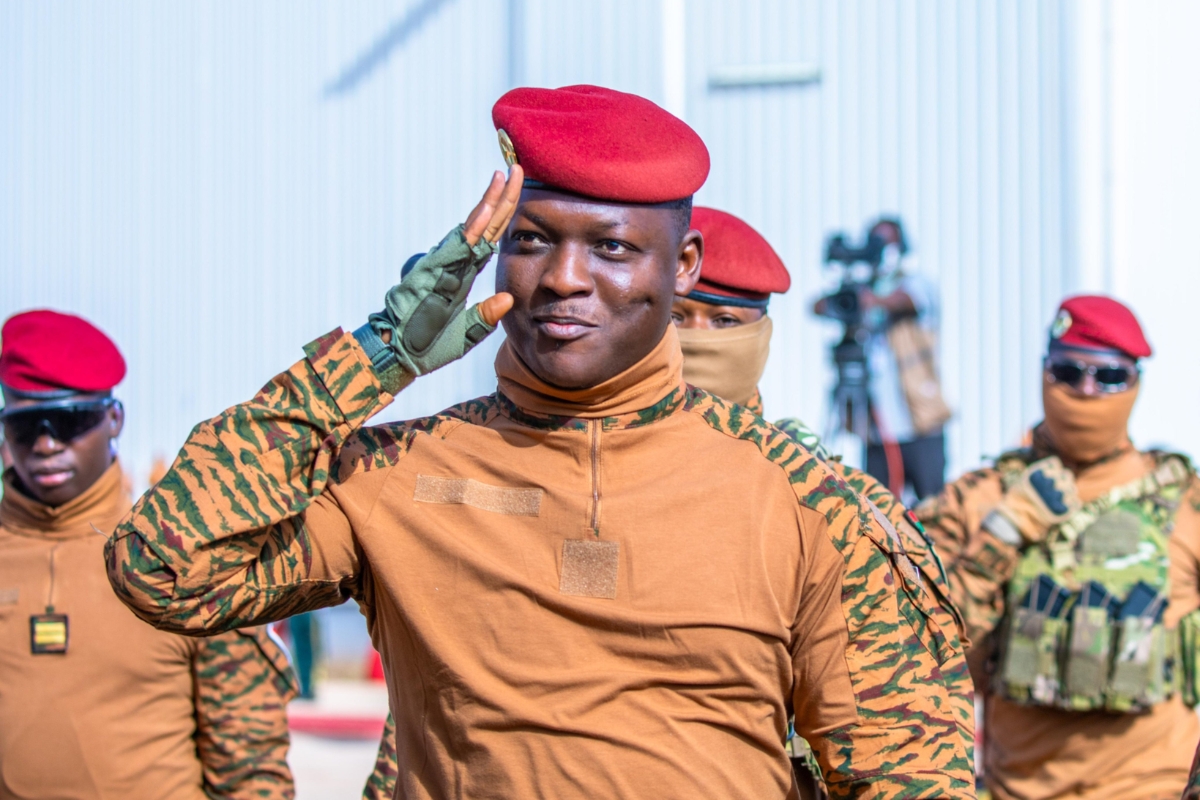
Picture a 37-year-old army captain, barely out of his youth, leading a nation of 23 million with a fiery dream to break free from centuries of colonial chains.
That is Ibrahim Traoré, Burkina Faso’s interim President since a dramatic 2022 coup.
Often called the modern Thomas Sankara, Burkina Faso’s revolutionary hero, Traoré has become a symbol of hope for young Africans fed up with Western influence and local corruption.
His bold moves, from nationalizing gold mines to launching homegrown electric buses, are reshaping Burkina Faso’s future.
However, his path is fraught with danger: a worsening security crisis, reported human rights abuses and multiple coup attempts threaten his vision.
At THOUSIF Inc. – ONLINE, we are diving into every facet of Traoré’s life, from his humble roots to his polarizing leadership, to uncover what makes him one of Africa’s most captivating figures as of June 14, 2025.
Early Life And Education

Ibrahim Traoré was born on March 14, 1988, in Kéra, a quiet village in Bondokuy, Mouhoun Province, Burkina Faso.
Raised in a modest family, he was part of a close-knit rural community that valued education and hard work.
His primary schooling in Bondokuy revealed a reserved yet brilliant student, and he later moved to Bobo-Dioulasso, Burkina Faso’s cultural and economic hub, for high school.
Teachers and peers described him as “quiet” and “very talented,” hinting at the leadership qualities that would later shine.
In 2006, Traoré enrolled at the University of Ouagadougou (now Université Joseph Ki Zerbo), where he pursued a master’s degree in geology.
From 2006 to 2010, he excelled academically while diving into activism.
He joined the Association of Muslim Students and the Marxist National Association of Students of Burkina Faso (ANEB), where he served as a delegate and advocated for student rights.
His involvement in ANEB, a group known for its leftist ideals, shaped his early commitment to challenging systemic inequalities.
Graduating with honors, Traoré’s university years laid the ideological groundwork for his pan-Africanist beliefs, blending a passion for self-reliance with a deep distrust of external influence.
Military Career
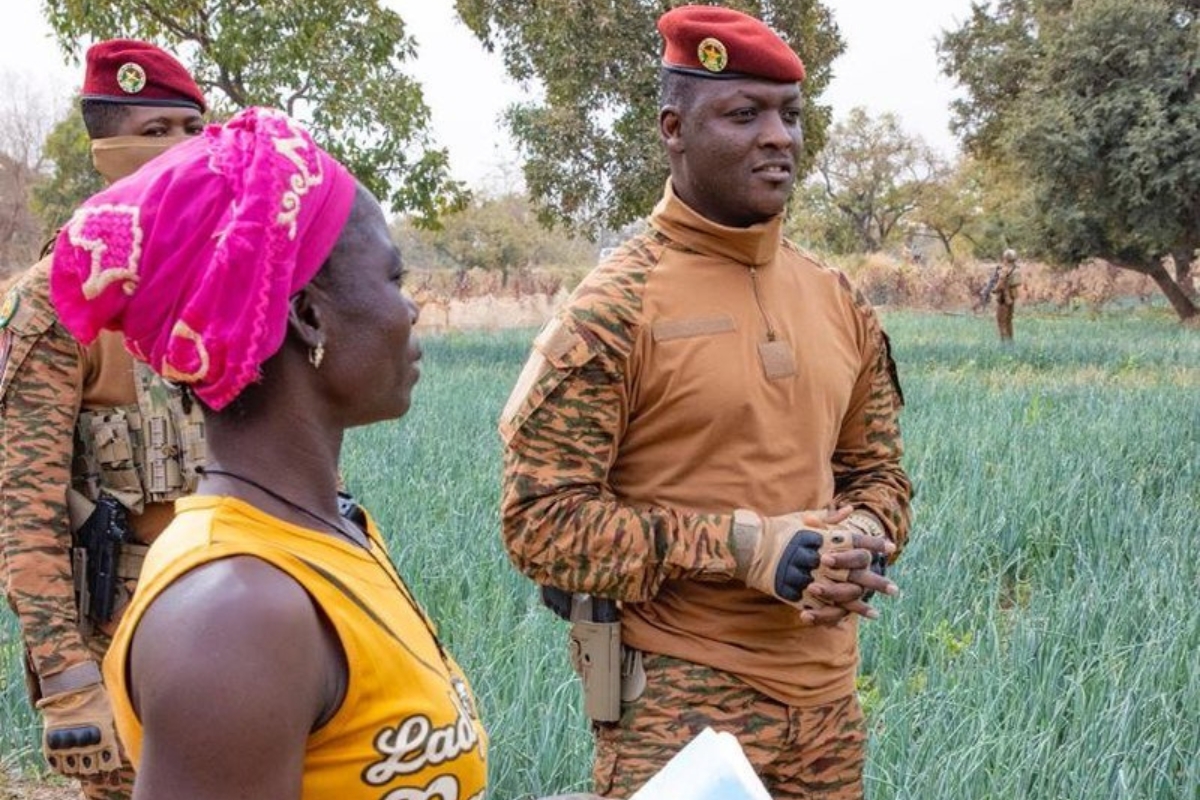
In 2009, Traoré’s life took a pivotal turn when he joined the Army of Burkina Faso and enrolled at the Georges-Namoano Military Academy in Pô.
He underwent specialized anti-aircraft training in Morocco, equipping him for modern warfare.
Stationed in Kaya, northern Burkina Faso, he rose to lieutenant by 2014.
His service with the United Nations Multidimensional Integrated Stabilization Mission in Mali (MINUSMA) in 2018 earned him accolades for bravery during rebel attacks in the Tombouctou Region, where he faced intense combat against jihadist groups.
Returning to Burkina Faso, Traoré fought in counter-insurgency operations, including the 2019 Otapuanu offensive in the East and Centre-East regions.
Launched in March 2019, the operation aimed to restore state control, neutralizing several jihadists and arresting over 100, but it cost seven soldiers’ lives, and nine were injured.
Traoré also participated in campaigns in Djibo, a northern hotspot for insurgent activity.
Promoted to captain in 2020, he grew increasingly frustrated with the government’s failure to provide soldiers with adequate equipment and address political corruption.
These experiences, coupled with the loss of comrades, fueled his resolve to challenge the status quo, setting the stage for his dramatic entry into politics.
Rise To Power
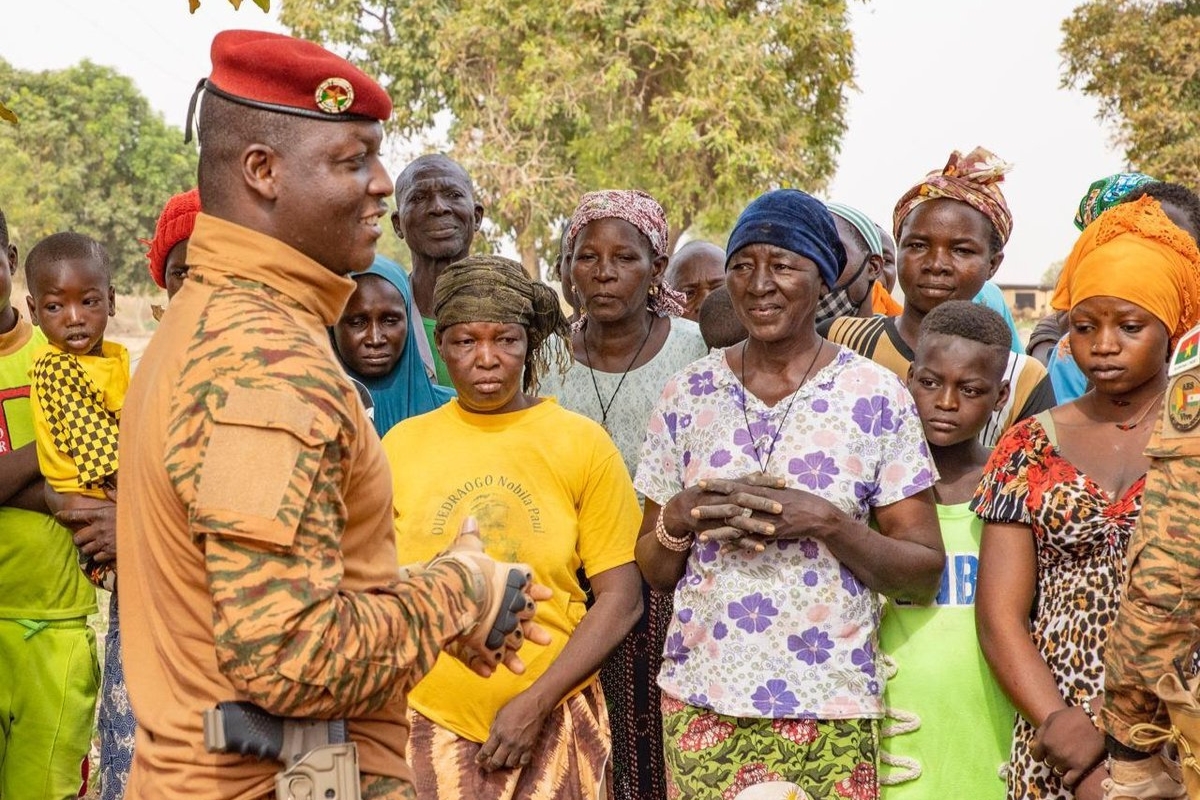
Traoré’s political journey began in January 2022, when he supported a coup led by Paul-Henri Sandaogo Damiba, which ousted President Roch Marc Kaboré amid growing insecurity.
Appointed head of the artillery regiment in Kaya in March 2022, Traoré quickly grew disillusioned with Damiba’s leadership, which failed to curb jihadist attacks or address governance issues.
On September 30, 2022, he led a second coup, overthrowing Damiba and becoming head of the Patriotic Movement for Safeguard and Restoration.
Sworn in as interim President on October 6, 2022, at age 34, Traoré became one of the world’s youngest heads of state, second only to Joseph Kabila of the Democratic Republic of Congo at the time.
In May 2024, his mandate was extended for five years, allowing him to contest future elections.
This decision sparked debate, with supporters praising his vision for stability and critics warning of democratic backsliding.
Traoré’s rise reflects a broader trend in the Sahel, where military takeovers have surged in Mali, Niger, and Burkina Faso.
These takeovers are driven by dissatisfaction with civilian governments’ inability to tackle security and economic challenges.
Leadership
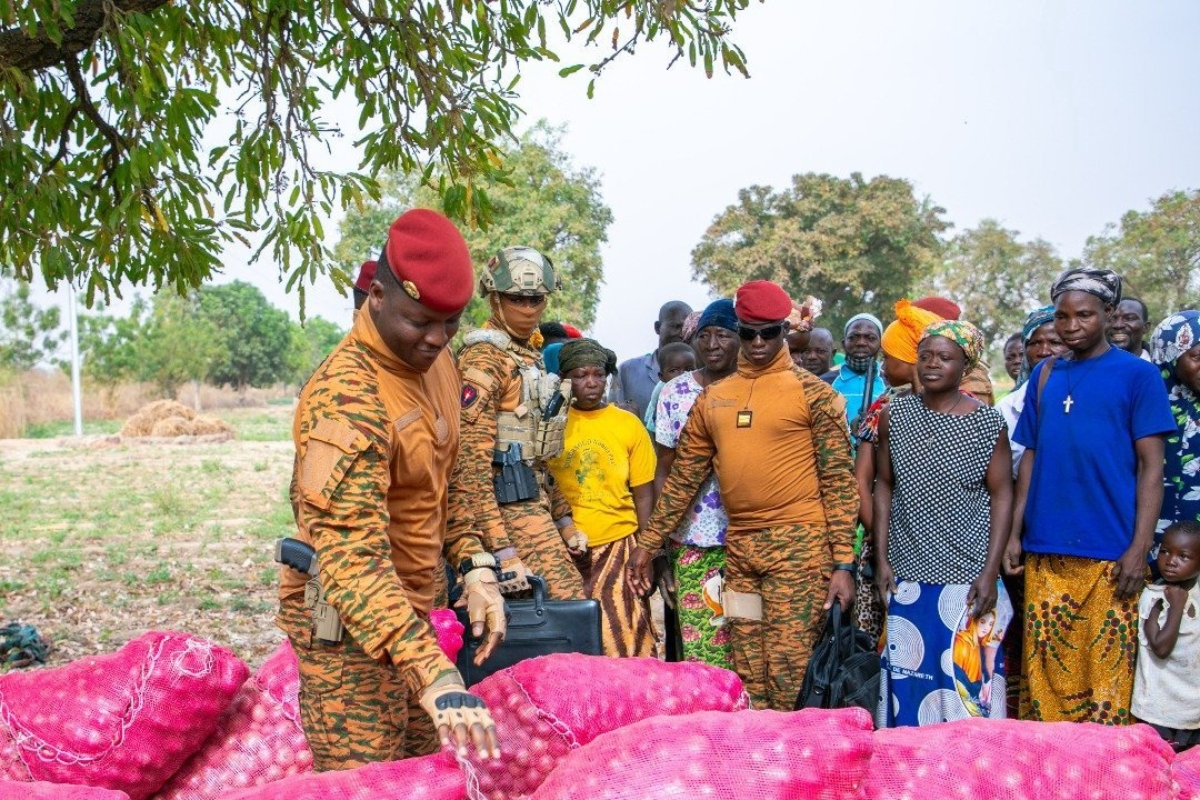
Traoré’s leadership is defined by a fierce commitment to pan-Africanism and economic independence, aiming to break Burkina Faso’s reliance on former colonial powers, particularly France.
His policies focus on leveraging natural resources, modernizing infrastructure, reviving cultural pride, and boosting agriculture.
Here is a comprehensive breakdown of his initiatives:
- Economic Reforms: In 2025, Traoré nationalized five gold mines, creating a state-owned mining company with a 15% stake for foreign firms to ensure skill transfer to Burkinabé workers. A gold refinery, approved in November 2023, produces 400 kg daily, generating jobs and revenue. In March 2025, he launched the Faso Kosam dairy factory, boosting local production and reducing import dependency. Traoré also established national gold reserves, a historic move to stabilize the economy. His government created a state-owned mining company to manage resources, aiming to secure larger shares of revenue from Burkina Faso’s gold, a key export. These efforts have increased state revenue, with the IMF noting a robust economy in 2025.
- Sustainable Development: On June 12, 2025, Traoré unveiled ITAOUA electric buses, manufactured locally in Ouagadougou with a 330 km range, powered by solar and electric energy. This positions Burkina Faso as a leader in Africa’s clean energy revolution, with the continent’s EV market projected to grow from $15.8 billion in 2024 to $25.4 billion by 2029. In 2025, 115 new urban buses were deployed, costing 44.8 billion CFA francs, to modernize transport, improve accessibility, and support the Presidential Initiative for Quality Education by easing school commutes. These buses are part of a plan to acquire 500 units, enhancing urban mobility and creating jobs.
- Agricultural Initiatives: In 2024, Traoré’s government distributed equipment worth 78 billion CFA francs to farmers, enhancing food security. The PARIIS-BF irrigation project rehabilitated 1,800 hectares, benefiting over 21,000 people. A tomato processing factory launched in 2025 reduces reliance on imported goods. In 2025, his administration began constructing irrigation canals to boost agricultural output, though claims of building Africa’s longest canal remain unverified. These efforts aim to address food insecurity, with 3.6 million Burkinabé facing acute hunger in 2025.
- Cultural Decolonization: Traoré removed colonial symbols, renaming Boulevard Général Charles De Gaulle to Boulevard Thomas Sankara in 2023. He mandated locally produced attire for officials, banned colonial-era judicial wigs, and dropped French as an official language, elevating local languages like Moore and Dioula to foster national pride. These moves aim to erase colonial legacies and strengthen cultural identity, resonating with youth seeking a decolonized future.
- Infrastructure Development: In 2025, Traoré’s government deployed 800 telecom towers to expand network access, targeting 1,000 “white zones” (areas without connectivity) by 2027. These efforts aim to bridge the digital divide, though security risks and vandalism pose challenges. Plans for new roads, public buildings, and urban infrastructure, announced in 2024, are underway to improve living conditions and stimulate economic growth.
These policies have driven economic progress, with GDP rising from $18.8 billion in 2022 to $22.1 billion in 2025, a 17.6% increase.
The World Bank reports poverty dropped from 26.9% to 24.9%, and projections suggest GDP growth of 8% by 2043, potentially lifting 2.4 million Burkinabé out of poverty.
However, 44.9% of the population still lives below the poverty line, highlighting the need for sustained efforts.
Policy Achievements
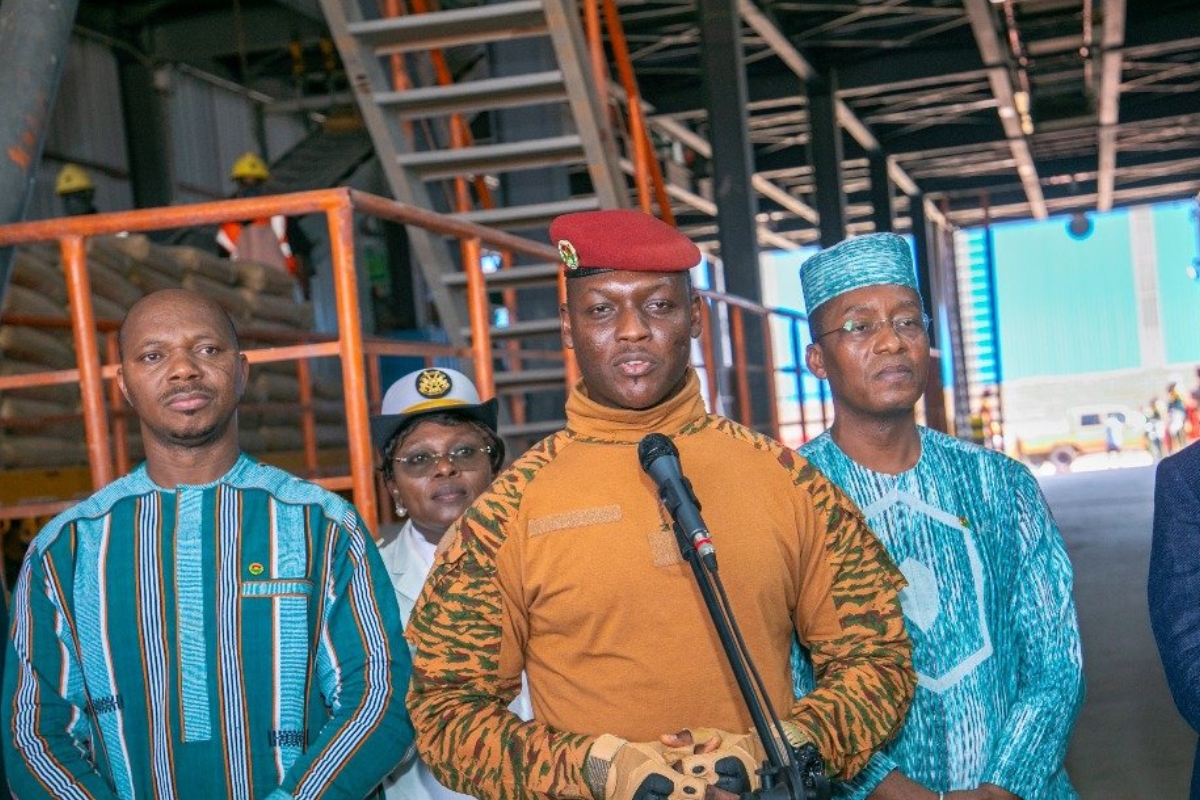
| Category | Initiative | Impact |
|---|---|---|
| Economic Reforms | Nationalized 5 gold mines, built a gold refinery, and launched a dairy factory | Increased revenue, created jobs, reduced imports |
| Sustainable Development | Launched ITAOUA electric buses, 115 urban buses | Promotes clean energy, improves transport |
| Agricultural Initiatives | Distributed equipment, irrigation projects, and a tomato factory | Boosts food security and productivity |
| Cultural Decolonization | Renamed streets, banned colonial symbols, and elevated local languages | Strengthens national identity |
| Infrastructure | Deployed 800 telecom towers, planned roads | Enhances connectivity and urban development |
Relations
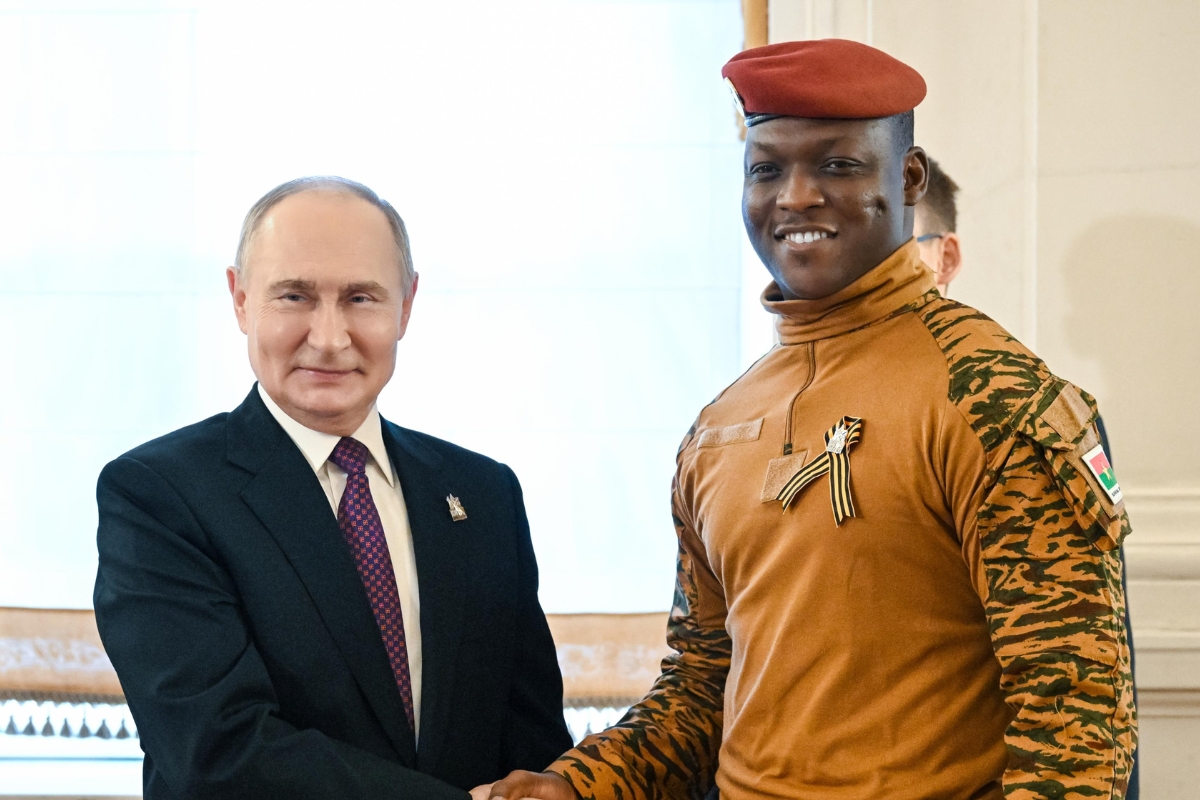
Traoré has radically reshaped Burkina Faso’s foreign policy, pivoting away from France and toward Russia and other non-Western allies.
In February 2023, he expelled French forces, ending decades of military cooperation.
In 2024, Russian troops, including members of the Wagner Group (later rebranded as the Africa Corps), were deployed to support Burkina Faso’s fight against insurgents.
On May 9, 2025, Traoré visited the Mendeleev Russian University of Chemical Technology in Moscow.
On May 10, he met Russian President Vladimir Putin to discuss security and economic cooperation, attending the 80th anniversary of the Soviet victory over Nazi Germany.
Traoré co-founded the Alliance of Sahel States with Mali and Niger in September 2023, withdrawing from the Economic Community of West African States (ECOWAS) in January 2024, citing French influence.
In 2025, his administration banned French media, including Canal+ programs like “The Bachelor Ouagadougou,” reflecting his anti-colonial stance.
He has also strengthened ties with Turkey, signed military cooperation agreements in 2024, and explored partnerships with North Korea and Iran.
These shifts have strained relations with Western nations and ECOWAS, with Ghana’s former President Nana Akufo-Addo accusing Traoré of harboring Russian mercenaries in December 2024.
Traoré’s diplomatic moves include attending the Russia-Africa Summit in July 2023, where his speech condemning Western exploitation went viral, and visiting Mali and Niger to solidify the Alliance of Sahel States.
His appearance with a holstered pistol at Ghana’s presidential inauguration on January 7, 2025, sparked controversy.
Some saw it as a provocative move amid tensions with Ghana, which accused him of destabilizing the region.
International Alliances
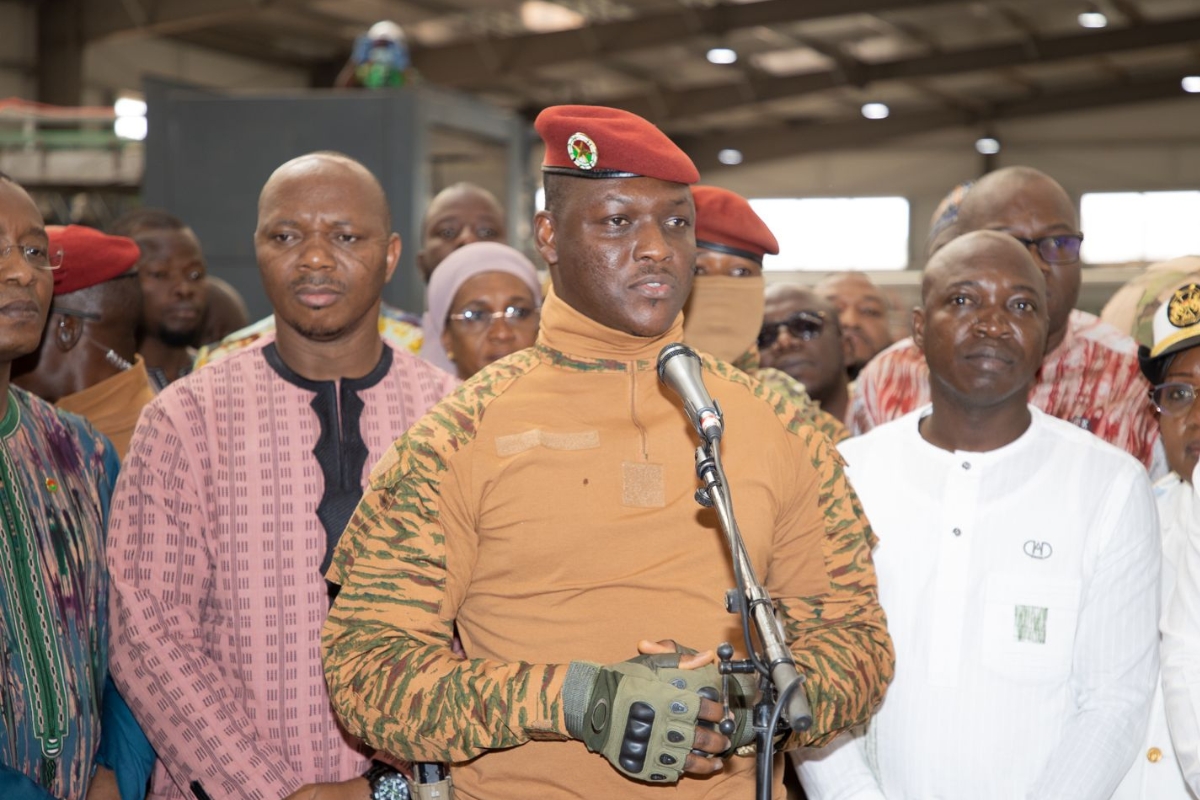
| Alliance | Action | Impact |
|---|---|---|
| Russia | Expelled French forces, deployed Russian troops, and met Putin in 2025 | Strengthened security ties, anti-Western stance |
| Alliance of Sahel States | Co-founded with Mali and Niger, left ECOWAS | Regional shift, reduced Western influence |
| Turkey | Signed military cooperation agreements | Diversified partnerships |
| North Korea, Iran | Explored potential partnerships | Expanded non-Western alliances |
Challenges
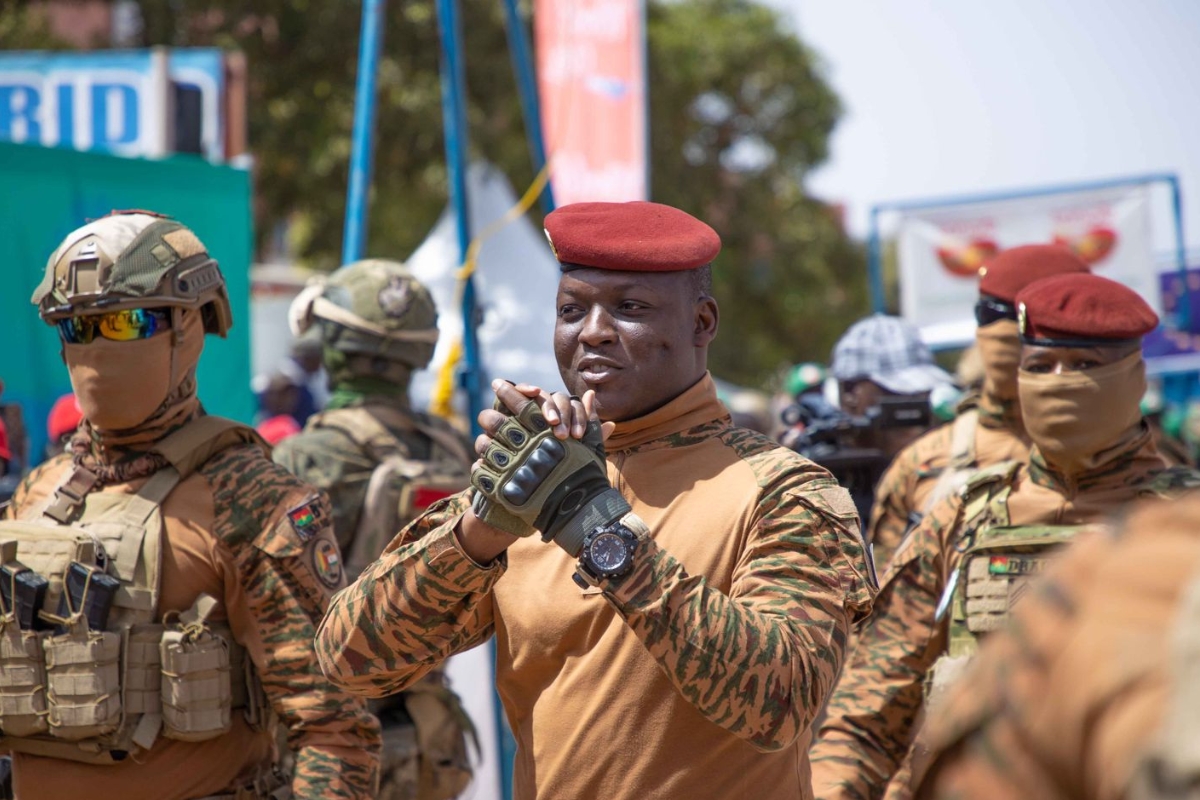
Traoré’s leadership faces immense challenges, particularly in security, human rights, and political stability, which have drawn global scrutiny:
- Security Crisis: Armed groups like Jama’at Nasr al-Islam wal Muslimin (JNIM) and the Islamic State in the Greater Sahara (ISGS) control approximately 40% of Burkina Faso’s territory, isolating 800,000 people in besieged towns. In 2023, over 7,600 terrorism-related deaths were reported, with 1,654 in the first quarter of 2025. On May 11, 2025, the JNIM attack in Djibo killed 200 soldiers, one of the deadliest in the country’s history, contradicting Traoré’s claims of territorial gains. Over 2 million people are internally displaced, and 5.9 million require humanitarian assistance, exacerbating food insecurity and disrupting livelihoods. Traoré has collaborated with the Volunteers for the Defense of the Homeland (VDP), a civilian militia, and Russian forces. However, progress remains limited, with insurgents launching large-scale attacks in northern and eastern regions in May 2025.
- Human Rights Concerns: Reports document severe abuses, including the conscription of judges, prosecutors, and civil society members into military operations since August 2024, with some missing. Activists like Rasmané Zinaba and Bassirou Badjo were abducted in February 2025, and their whereabouts remain unknown. In March 2025, government forces and allied militia killed at least 130 civilians near Solenzo, and the April 2024 Karma massacre claimed 156 lives. Detained journalists, including Adama Bayala, and restricted press freedom have raised alarms about democratic decline. A law passed in December 2024 suspended 13 political parties, further curbing opposition. These actions have drawn criticism from Human Rights Watch and other organizations, labeling Traoré’s regime as increasingly authoritarian.
- Coup Attempts and Internal Dissent: Traoré has survived an estimated 16-20 assassination and coup attempts since 2022, including a major plot foiled on April 16, 2025, allegedly led by soldiers based in Ivory Coast aiming to attack the presidential palace. The plot reportedly involved terrorist leaders, highlighting the overlap between internal dissent and external threats. In December 2024, a controversial law granted amnesty to 2015 coup plotters, including Général Gilbert Diendéré, possibly to appease senior military figures or leverage their expertise. Analysts warn this sets a risky precedent, potentially emboldening future coups.
- Diplomatic Tensions: Traoré’s appearance with a holstered pistol at Ghana’s presidential inauguration on January 7, 2025, sparked controversy. It was seen as a provocative move amid strained relations with Ghana. In April 2025, U.S. Général Michael Langley accused Traoré of misusing gold reserves, prompting a solidarity march in Ouagadougou. France’s president described him as part of a “baroque alliance” with neo-imperialists, reflecting Western skepticism of his Russian ties.
- Economic and Social Challenges: Despite economic gains, 44.9% of Burkinabé live below the poverty line, and 3.6 million face acute food insecurity. Traoré’s conscription of 50,000 civilians into the VDP, including forced recruitment, has been criticized as coercive. His government’s crackdown on opposition, including imprisoning politicians and journalists, has fueled fears of a police state.
Human Rights Issues
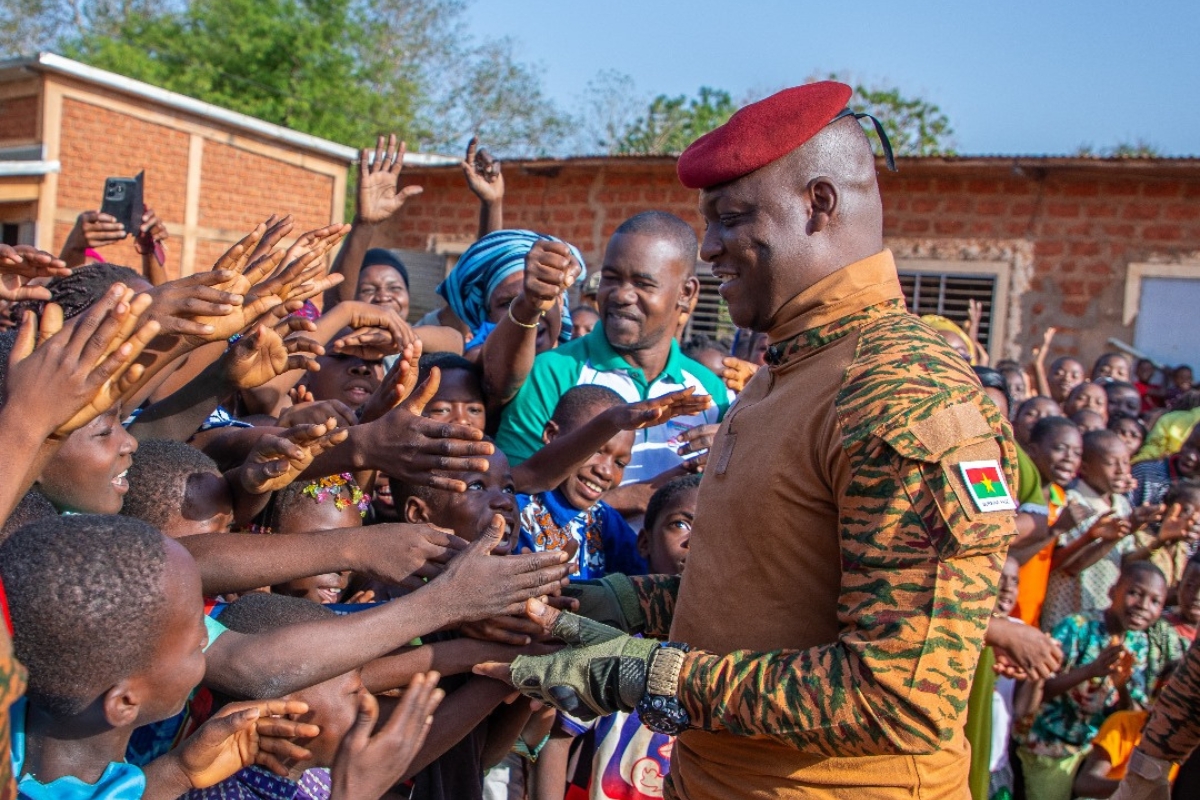
| Issue | Details | Impact |
|---|---|---|
| Territory Control | 40% controlled by JNIM/ISGS, 800,000 isolated | Limits governance, isolates communities |
| Terrorism Deaths | 7,600 in 2023, 1,654 in Q1 2025, the Djibo attack killed 200 soldiers | Undermines security claims |
| Civilian Massacres | Karma (2024): 156 killed, Solenzo (2025): 130 killed | Fuels human rights criticism |
| Forced Conscription | 50,000 civilians, including judges, conscripted into the VDP | Raises coercion concerns |
| Press Freedom | Detained journalists, suspended 13 political parties | Signals of democratic decline |
Popularity
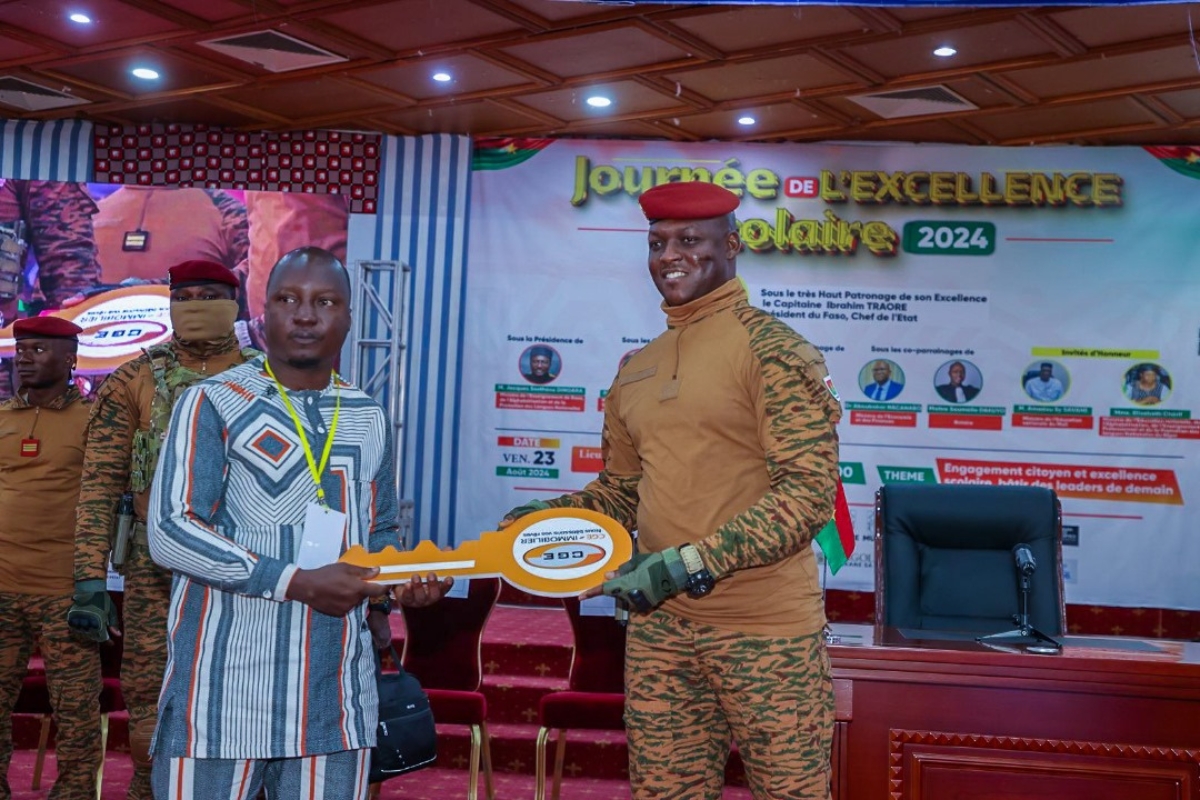
Traoré’s charisma and anti-imperialist rhetoric have made him a hero among African youth, with Burkina Faso’s median age at 17.7.
His speeches, like one calling for a “United African Civilization State,” resonate widely, urging Africans to reject Western-imposed narratives.
Social media amplifies his image, with AI-generated videos and deepfakes portraying him as a divine warrior or “Africa’s Messiah.”
One false video in May 2025 claimed praise from “Pope Leo XIV,” a nonexistent figure.
Rallies in Ouagadougou on April 30, 2025, following a coup attempt, and global solidarity events in London underscore his support.
A solidarity march in Ouagadougou was sparked by U.S. Général Michael Langley’s April 2025 accusation that Traoré misused gold reserves, boosting his populist appeal.
Social media posts praise his economic achievements, with one falsely claiming he paid off Burkina Faso’s international debt in March 2025; the country still owes the IMF 324 million Special Drawing Rights.
Nigerian actress Hilda Dokubo lauded him as proof of leadership’s impact, while a Liberian protester called him “hope for Black people.”
Posts on X describe him as a “modern synthesis of revolutionary legacy” and urge his speeches to be taught in schools.
His 2023 Russia-Africa Summit speech condemning Western exploitation went viral, with Russian media amplifying his message.
A 2024 Afrobarometer survey across 39 African countries noted declining support for democracy, positioning Traoré as an alternative to failed systems.
However, critics highlight his intolerance for dissent.
Detained journalists, including Adama Bayala, and a March 2025 attack killing 100 civilians near Solenzo have fueled accusations of authoritarianism.
Foreign journalists lament his crackdown on press freedom, and France’s president criticized his alignment with “neo-imperialists.”
Despite this, Traoré’s image as Sankara’s heir endures, with supporters viewing him as a revolutionary fighting for African sovereignty.
Public Perception Dynamics
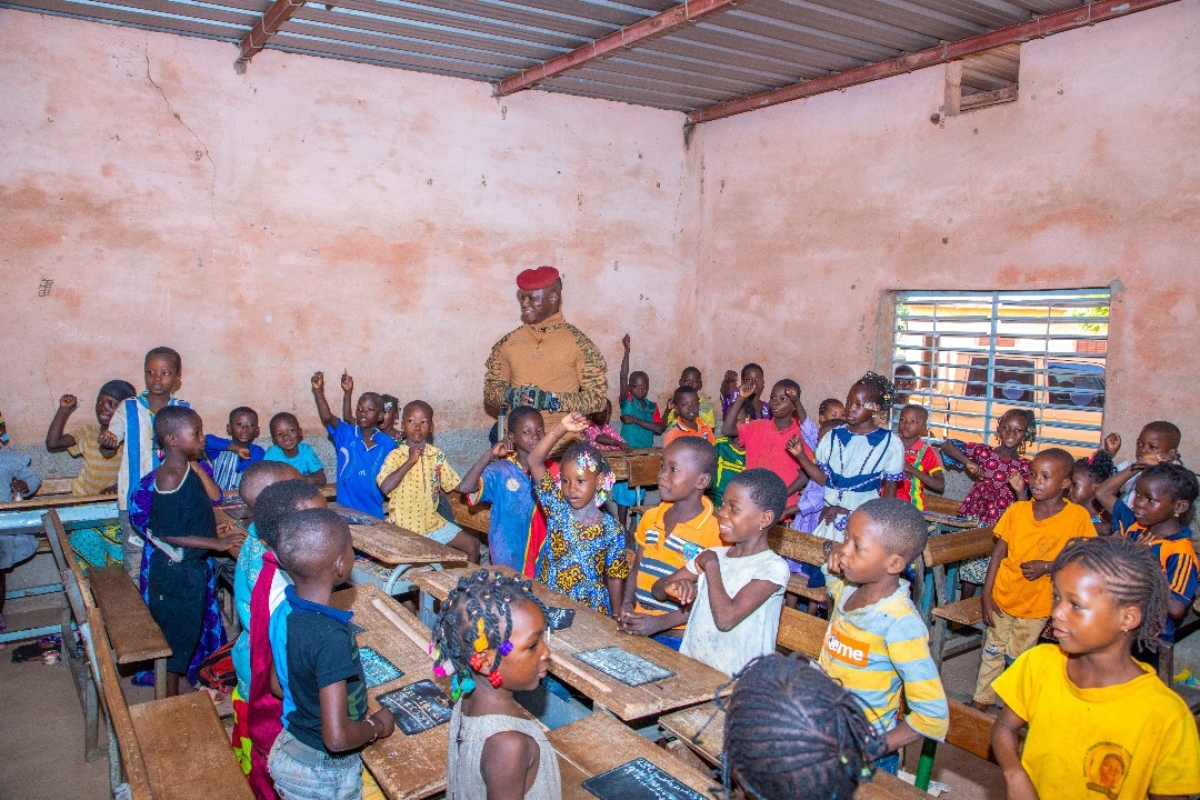
| Aspect | Description | Impact |
|---|---|---|
| Youth Support | Seen as Sankara’s heir, inspires with anti-imperialist rhetoric | Drives rallies, boosts regional influence |
| Social Media Presence | AI deepfakes, viral videos create a digital cult, false claims spread | Amplifies appeal, spreads misinformation |
| Criticism | Intolerance for dissent, journalist detentions, and civilian deaths | Sparks debate over authoritarianism |
Personal Life
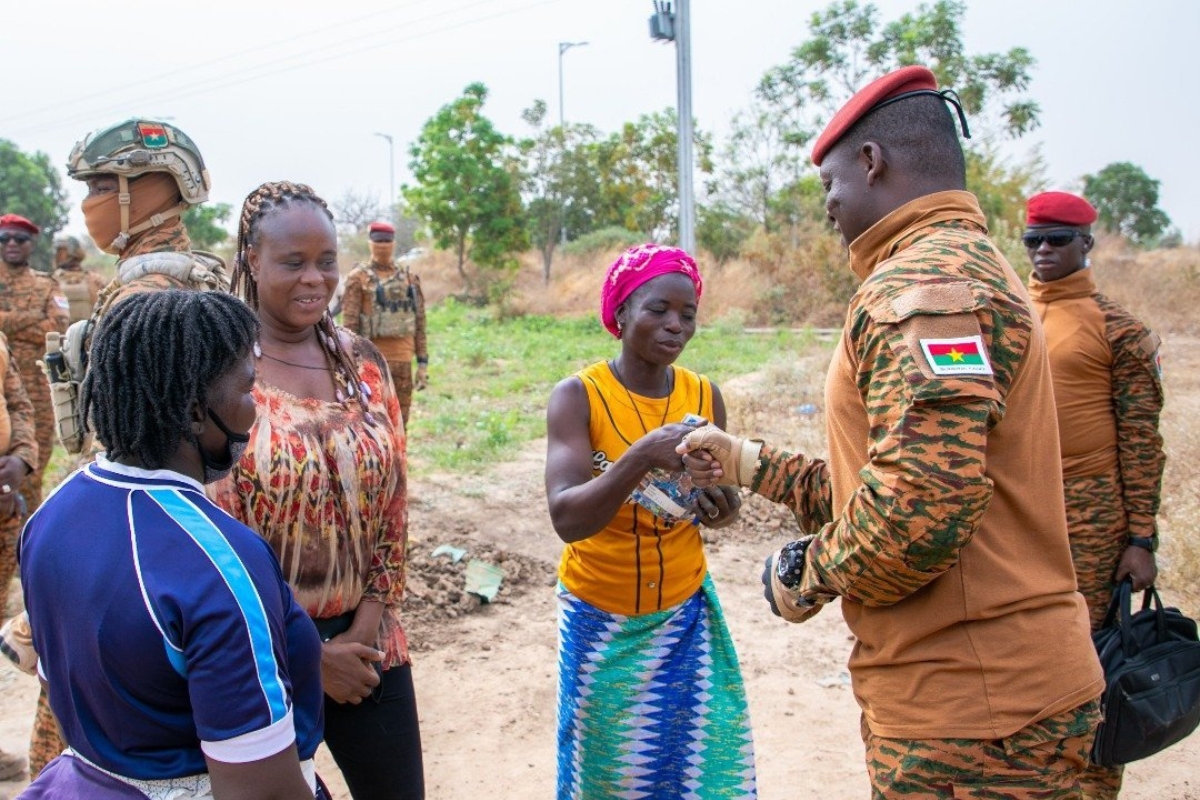
Traoré keeps his personal life tightly guarded, likely due to security concerns amid numerous assassination attempts.
He is married, but his wife’s name remains undisclosed, and no credible information exists about his children.
A viral photo claiming to show his family was debunked as manipulated.
As a devout Muslim from the Bondokuy tribe, his faith shapes his leadership, evident in his participation in Tabaski prayers with soldiers in June 2025.
His preference for privacy contrasts with his high-profile public persona, reflecting the precarious nature of his position.
Traoré’s red beret, often worn during appearances, has become a symbol of his revolutionary identity, echoing Sankara and Che Guevara.
Milestones
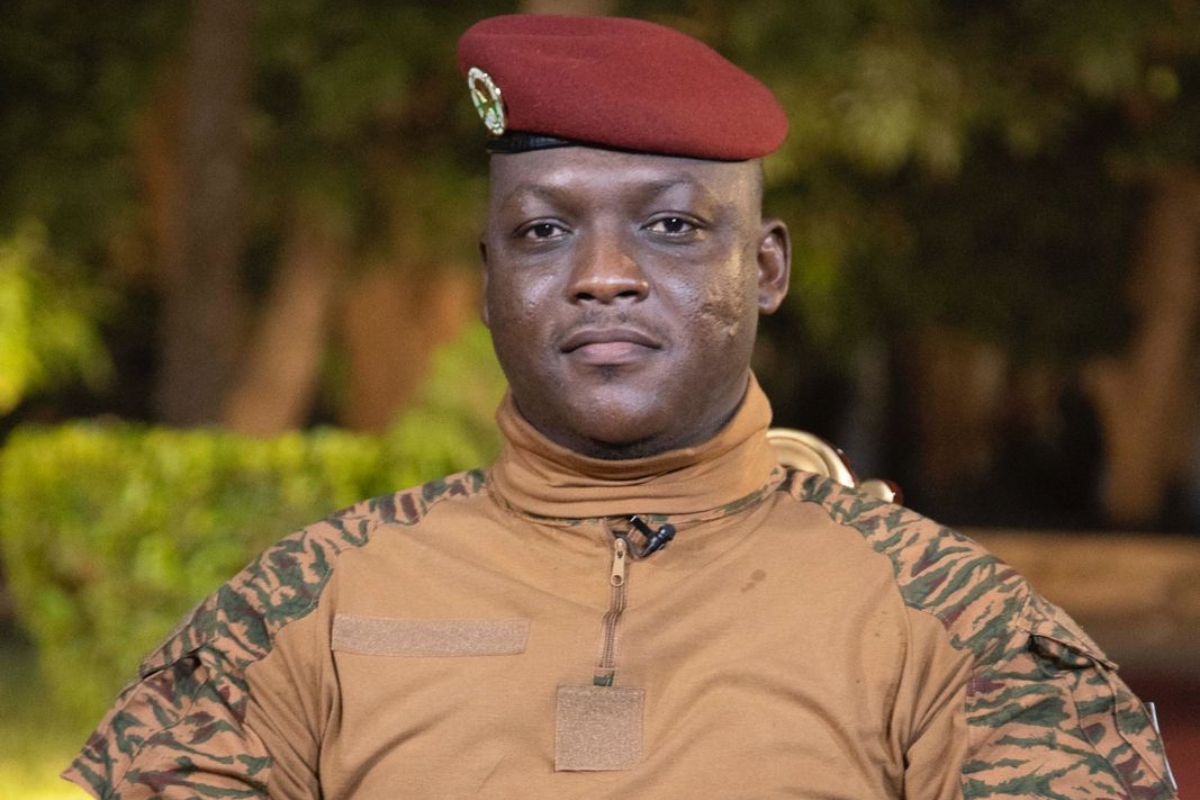
| Year | Event |
|---|---|
| 1988 | Born in Kéra, Bondokuy, Burkina Faso |
| 2006 | Enrolled in geology at the University of Ouagadougou |
| 2009 | Joined the Burkina Faso Army |
| 2014 | Promoted to lieutenant, served in Mali with MINUSMA |
| 2020 | Promoted to captain |
| 2022 | Supported January coup, led September coup, became interim President |
| 2023 | Expelled French forces, co-founded the Alliance of Sahel States |
| 2024 | Mandate extended for five years, banned French media, passed amnesty law |
| 2025 | Unveiled electric buses, foiled coup attempt, met Putin in Moscow |
Recent Developments
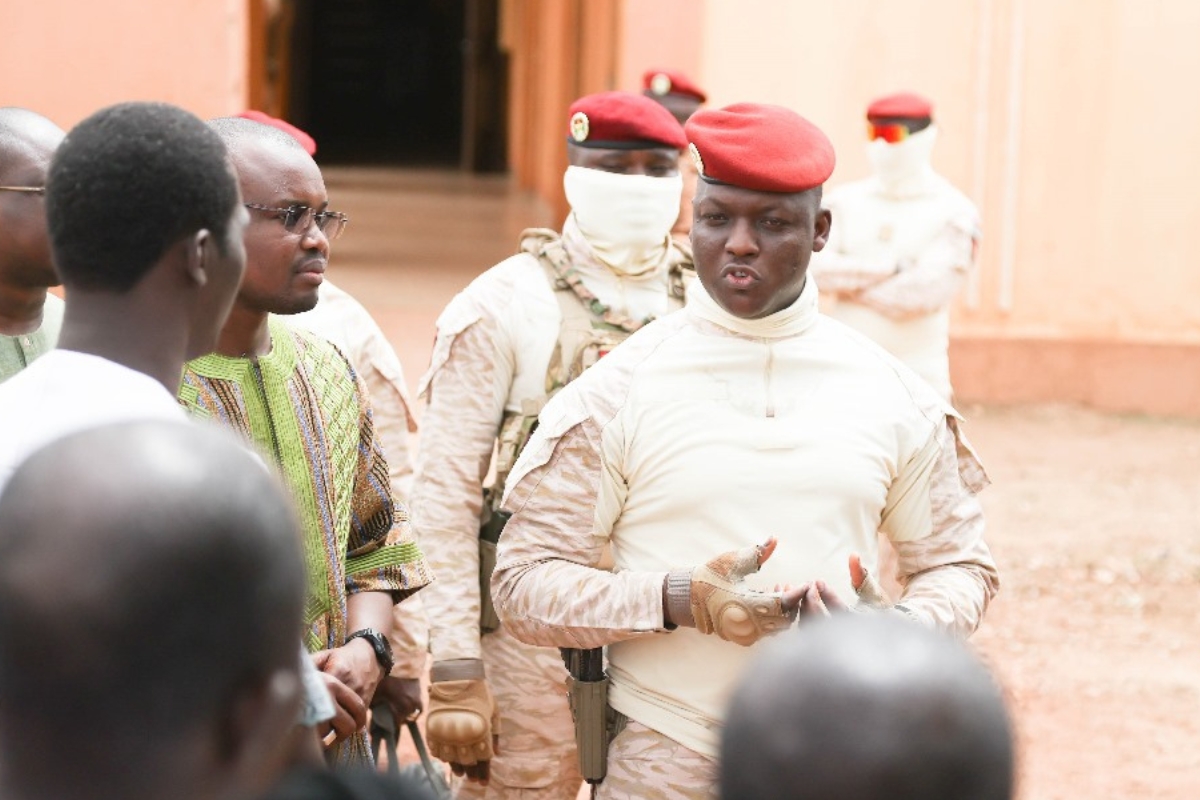
As of June 14, 2025, Traoré remains a dynamic figure. On June 4, he chaired the Council of Ministers, and on June 6, he joined combatant forces for Tabaski prayers, reinforcing his military ties.
His government’s irrigation canal projects aim to boost agriculture, though exaggerated claims of building Africa’s longest canal lack evidence.
On May 7, 2025, reports highlighted his growing digital cult, with social media glorifying his image, including false claims of endorsements from Western figures.
In early May, JNIM launched large-scale attacks in northern and eastern Burkina Faso, underscoring the ongoing security crisis.
Traoré’s cultural initiatives include celebrating Thomas Sankara’s legacy, with a mausoleum designed by architect Francis Kéré opened in 2025 to “keep the flame of the revolution alive.”
His government passed a controversial amnesty law in December 2024, pardoning 2015 coup plotters like Général Gilbert Diendéré, possibly to appease senior officers or leverage their expertise amid internal tensions.
In April 2025, Traoré’s administration cracked down on opposition, imprisoning politicians and journalists driven by fears of another coup.
His appearance at Ghana’s inauguration with a pistol in January 2025 and the foiled coup attempt in April highlight the constant threats he faces.
Future Prospects
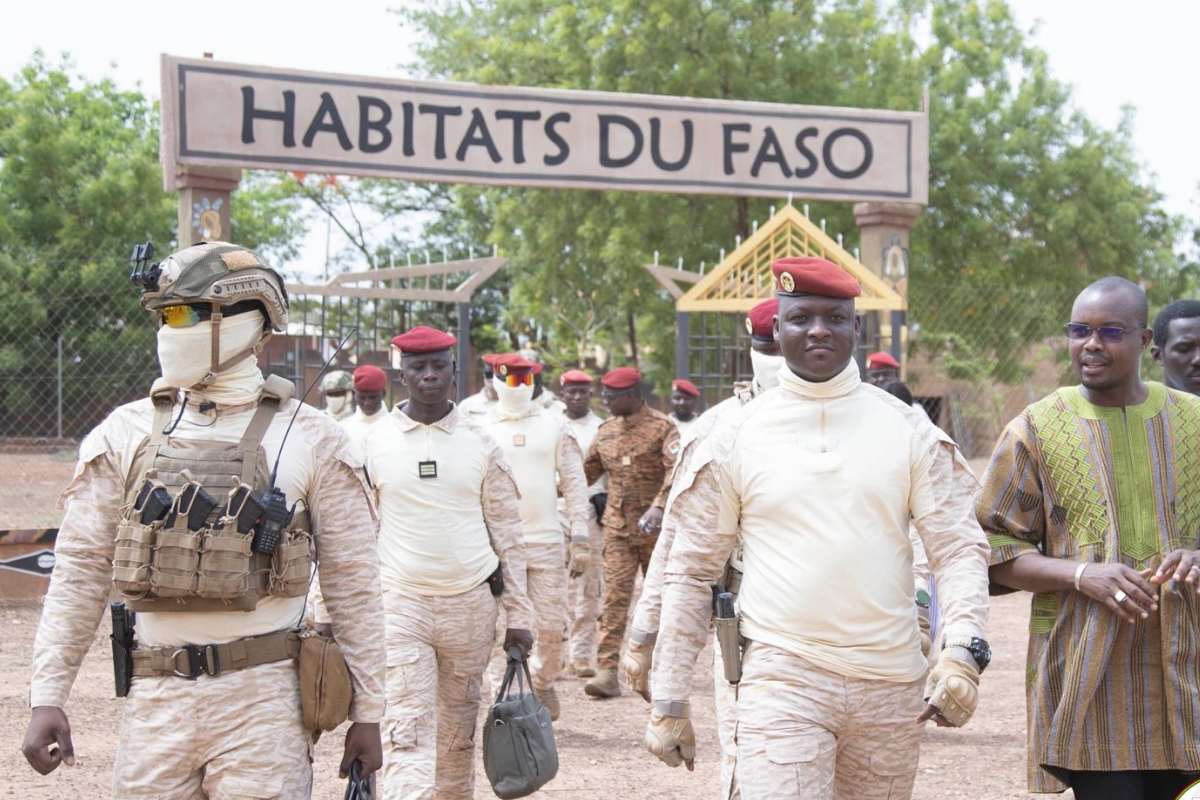
Traoré’s legacy is a complex blend of revolutionary promise and daunting challenges.
His economic reforms, cultural decolonization, and anti-Western stance have revitalized national pride and inspired a generation across Africa.
His policies could lead to sustained GDP growth, with projections of 8% by 2043, potentially lifting 2.4 million Burkinabé out of poverty.
His digital cult, fueled by AI deepfakes, positions him as a larger-than-life figure, with supporters calling him “Africa’s Che Guevara” or “the Black hope.”
However, the security crisis, with 40% of the country under insurgent control, and human rights abuses threaten his achievements.
The conscription of civilians, detention of journalists, and civilian massacres have drawn international condemnation.
Analysts warn that his repression of dissent and reliance on Russian support may deepen instability, with little hope for improvement unless security improves.
His international alignment with Russia, North Korea, and the Alliance of Sahel States positions him as a key player in Africa’s shifting geopolitics.
However, it alienates Western partners and risks economic isolation.
Traoré’s ability to balance populist appeal with effective governance will determine whether he fulfills Sankara’s dream of a self-reliant Burkina Faso or succumbs to the region’s volatility.
His survival of 16-20 assassination attempts underscores the risks he faces, but his resilience keeps his vision alive.
As Burkina Faso navigates this pivotal moment, Traoré remains a figure of both inspiration and controversy, embodying the hope and peril of revolutionary change.
Economic Impact
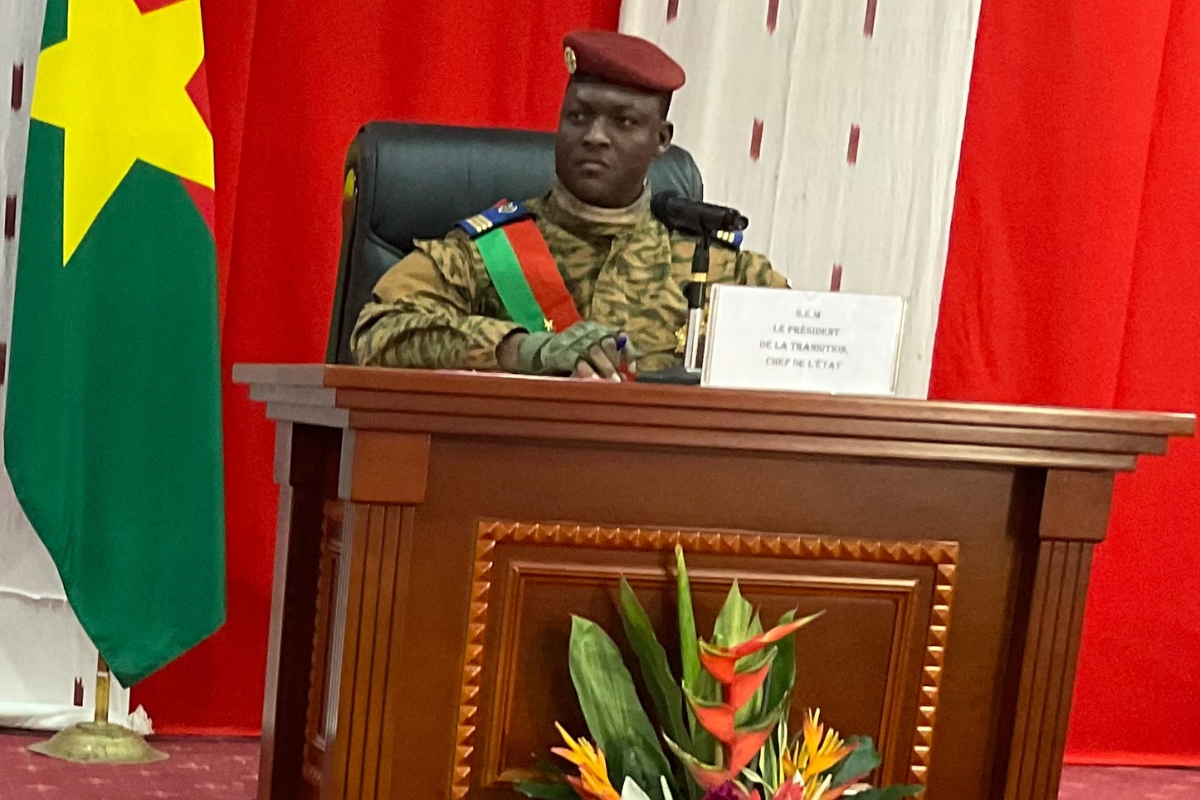
| Metric | 2022 | 2025 | Change |
|---|---|---|---|
| GDP | $18.8 billion | $22.1 billion | +17.6% |
| Poverty Rate | 26.9% | 24.9% | -2% |
| Gold Production | Limited state control | 400 kg/day via refinery | Nationalized 5 mines |
| Displacement | 1.8 million | 2 million | +11.1% |
| Humanitarian Need | 4.9 million | 5.9 million | +20.4% |
Conclusion
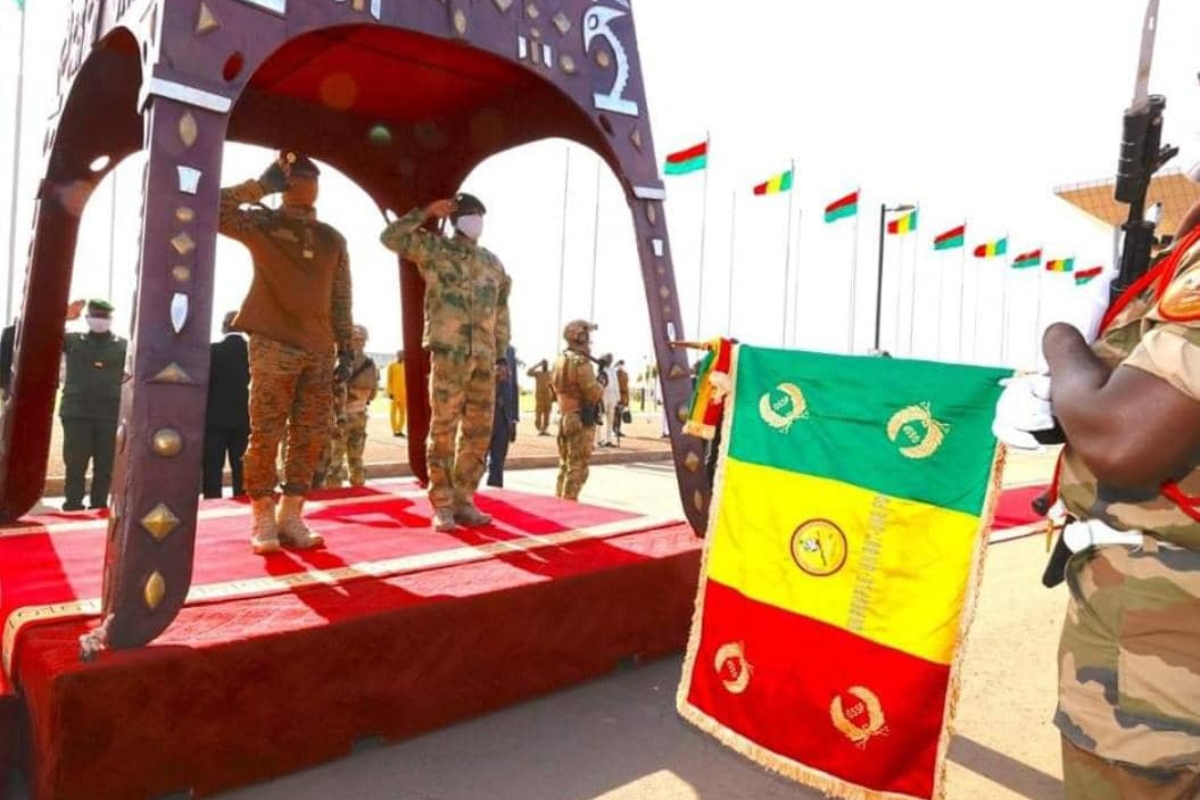
Ibrahim Traoré’s journey from a village in Burkina Faso to the presidency is a gripping saga of ambition, courage, and transformation.
At 37, he is not just leading a nation.
He is challenging a continent to reclaim its destiny.
His bold policies, from electric buses to cultural decolonization, have sparked hope for a self-reliant Africa, but the shadows of violence, repression, and instability loom large.
As Burkina Faso stands at a crossroads, Traoré’s story invites us to ponder the price of revolution and the power of youth.
At THOUSIF Inc. – ONLINE, we are passionate about uncovering the leaders shaping our world.
Trivia
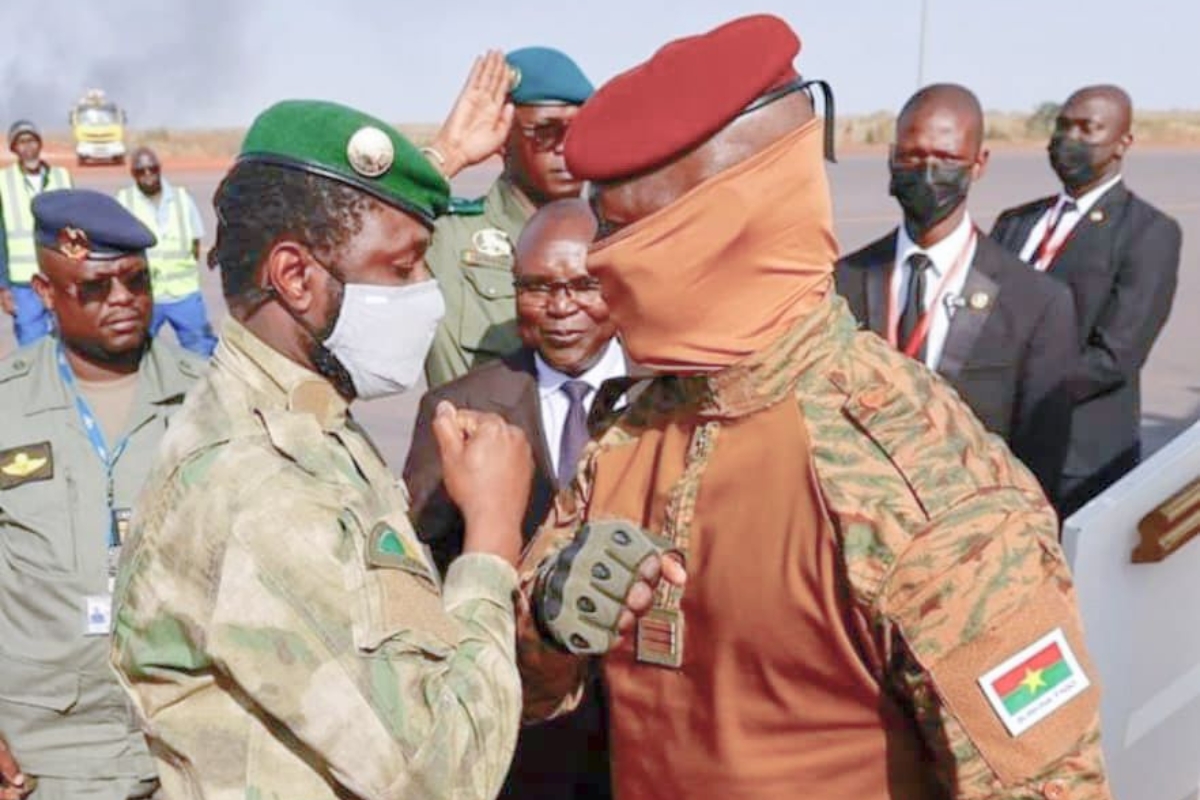
Ibrahim Traoré’s red beret, a staple of his public appearances, has become a powerful symbol of his revolutionary persona. It echoes the iconic style of Thomas Sankara and Che Guevara, earning him the nickname “Africa’s Che Guevara.”
